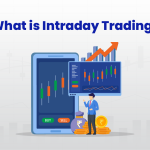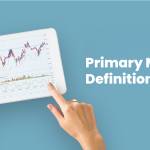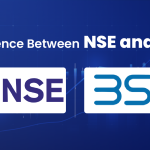Trading is the buying and selling of financial instruments like stocks, commodities, currencies and
derivatives in different markets. For individuals, it opens an opportunity to make money out of the
changes in prices and to manage the challenges of the global economy.
In particular, the use of technology in trading has increased the number of people who are willing to
participate in this high-risk market, starting from experienced traders to those who have little to no
experience in trading. Whether one is interested in increasing their earnings or expanding their
investment list, there is no way one can avoid trading, and therefore, it is important to know the basics.
What is Trading?
Trading is the process of buying and selling financial instruments such as stocks, bonds, currencies, and
commodities with the aim of making profits. It involves the use of various securities with the intention of
making profits through buying securities at one price and selling them at a higher price.
History of Trading in India
Trading in India has its roots as early as the 1840s when incorporated companies came into the scene.
The more formal organised trading of securities started with the formation of the Bombay Stock
Exchange (BSE) in 1875, which is one of the oldest stock exchanges in Asia.
It is important to note that the Indian stock market has grown over time. Some of the major
developments include the establishment of the National Stock Exchange NSE in 1992 and the change in
trading from the manual to the electronic mode. New economic policies in the 1990s helped to expand
the market as many investors, both from within and outside the country, invested in the market.
Types of Trading
There are several types of trading in financial markets, each catering to different investment strategies
and goals. Here are some common types of trading:
- Intraday Trading
Intraday trading involves selling and buying securities on the same trading day. Traders try to capitalise
on small price movements and close all open positions before the market closes. - Swing Trading
Swing trading focuses on capturing short- to medium-term gains over a few days to weeks. Traders use
technical analysis to identify potential price swings and hold positions accordingly.
- Scalping or Micro Trading
Scalping involves making numerous trades throughout the day to profit from small price changes.
Scalpers hold positions for a very short duration, often just seconds or minutes. - Momentum Trading
Momentum trading involves buying securities that are trending strongly in one direction and selling
them when the trend shows signs of reversing. Traders rely on market momentum to make profits. - Long-Term Trading
Long-term trading, or position trading, involves holding securities for an extended period, ranging from
months to years. Traders focus on fundamental analysis and long-term market trends.
How Does Trading Work?
Trading is the process of buying and selling financial assets like stocks, commodities, or currencies to
earn a profit. Traders predict the price movements of these assets, aiming to buy low and sell high. If
their predictions are accurate, they make a profit; if not, they face losses. Trading can be conducted on
various platforms and requires strategies such as market analysis and risk management.
What are the Assets That you can Trade in the Market?
You can trade a wide variety of financial assets and markets, each offering unique opportunities and
risks. Here are six key assets you can trade: - Equities
Equities, or shares, represent ownership in a company. Investors buy and sell shares to profit from price
changes and dividends. - Stock Market Indices
Indices track the performance of a group of stocks. Traders can invest in indices to gain exposure to a
broader market segment. - Foreign Exchange (Forex)
Forex trading involves buying and selling currency pairs. Traders profit from fluctuations in exchange
rates between different currencies. - Fixed-Income Securities
Bonds are debt instruments issued by governments or corporations. Investors earn interest and receive
the principal amount back at maturity. - Commodities
Commodities include physical goods like gold, oil, and agricultural products. Traders buy and sell
commodities to profit from price changes. - Exchange-Traded Funds (ETFs)
ETFs are investment funds traded on stock exchanges. They hold a diversified portfolio of assets,
providing exposure to various markets.
What are the Benefits and Risks of Trading?
Trading offers both opportunities for profit and risks of loss, depending on market conditions and the
trader’s strategy. While it can provide potential financial gains, it also comes with inherent risks that
need to be managed carefully.
Benefits Risks
| Benefits | Risks |
| Trading may yield profits, especially in volatile markets. | There is a risk of losing part or all of the investment. |
| Traders can buy and sell assets quickly, providing the ability to enter and exit positions easily. | Prices can fluctuate dramatically, leading to unexpected losses. |
| A variety of assets (stocks, forex, commodities) allows for diversification. | Successful trading requires understanding market trends, analysis, and strategies. |
| Traders can control larger positions with a smaller amount of capital through leverage. | Using margin can lead to amplified losses and may result in a margin call. |
| Trading can be done from anywhere with internet access, providing flexibility in lifestyle. | The pressure of trading can lead to emotional decision-making and stress. |
| Trading offers opportunities for ongoing education and skill development. | Changes in regulations can impact trading conditions and strategies. |
Conclusion
Trading is not just about buying and selling; it’s a continuous journey of learning and adaptation. By
understanding market principles, developing effective strategies, and staying informed about global
trends, traders can navigate the complexities of the financial landscape with confidence. Remember,
success in trading comes from patience, discipline, and a commitment to ongoing education. Embrace
the challenges, celebrate the victories, and always strive to improve your skills. Happy trading!
Frequently Asked Questions
Q1. Is trading safe or not?
Trading can be safe if approached with proper knowledge, risk management, and discipline. However, it
carries inherent risks, and one can lose capital if not careful.
Q2. Is trading a good career?
Trading can be a rewarding career for those with the right skills, knowledge, and temperament. It offers
flexibility and potentially high earnings but requires patience, discipline, and continuous learning.
Q3. Who is the No. 1 investor in India?
According to recent data, Radhakishan Damani is considered one of the top investors in India, and he is
known for his significant net worth and successful investments.











